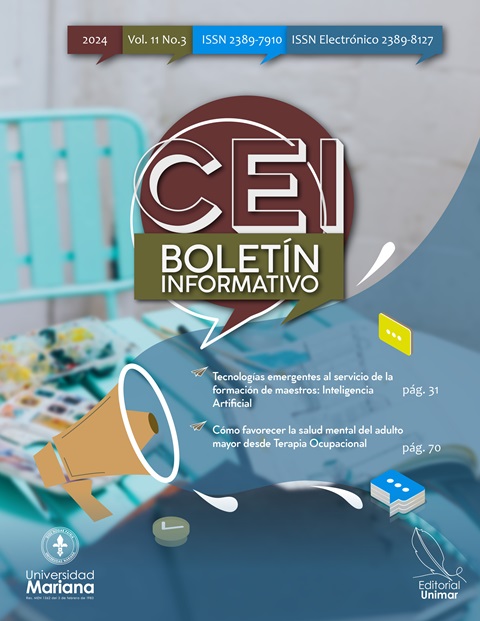Del sol a la mesa: PRONACA Puembo, pionera en revolución fotovoltaica para la industria alimentaria sostenible
Keywords:
energía fotovoltaica, aguas residuales, industriaAbstract
The visit of Environmental Engineering students and faculty from Universidad Mariana to the PRONACA food processing plant in Puembo, Ecuador, is described. The plant has implemented an innovative photovoltaic energy system for more sustainable production. The experience allowed participants to observe how solar energy reduces dependence on fossil fuels, optimizes operational costs, and significantly reduces the carbon footprint. The solar panels generate 100% of the energy needed by the plant and also supply some nearby homes.
In addition, the plant uses circular economy strategies in food safety and operates a Wastewater Treatment Plant (WWTP) that also incorporates solar energy. This reinforces sustainability concepts by demonstrating positive environmental and economic impacts. PRONACA shows a commitment to corporate social responsibility, contributing to community well-being and serving as an example within the food industry. The visit inspired students to further explore renewable energy solutions.
Author Biographies
Gabriel Fernando Achícanoy Suarez, Universidad Mariana
Estudiante de Ingeniería Ambiental, Universidad Mariana
Víctor Manuel Constaín Enríquez, Universidad Mariana
Estudiante de Ingeniería Ambiental, Universidad Mariana
Yeferson Julián Delgado Bolaños, Universidad Mariana
Estudiante de Ingeniería Ambiental, Universidad Mariana
Manuel Alejandro Manuel Alejandro, Universidad Mariana
Estudiante de Ingeniería Ambiental, Universidad Mariana
Rocío del Carmen Ojeda Ocaña, Universidad Mariana
Profesora de Ingeniería Ambiental, Universidad Mariana
Teresita del Rocío Canchala Nastar, Universidad Mariana
Profesora de Ingeniería Ambiental, Universidad Mariana
References
Behrendt, M. & Franklin, T. (2014). A review of research on school field trips and their value in education. International Journal of Environmental and Science Education, 9(3), 235-245.
Jäger-Waldau, A. (2020). The untapped area potential for photovoltaic power in the European Union. Clean Technology, 2(4), 1-7. https://doi.org/10.3390/cleantechnol2040027
Kabir, A., Miah, S., & Islam, A. (2018). Factors influencing eating behavior and dietary intake among resident students in a public university in Bangladesh: A qualitative study. PLoS ONE, 13(6), e0198801. https://doi.org/10.1371/journal.pone.0198801
Krupczak, J. J. & Disney, K. A. (2013). Promoting active learning through industry visits and field trips. Proceedings of the ASEE Annual Conference & Exposition, Atlanta, GA.
Nadelson, L. S. & Jordan, J. R. (2012). Student attitudes toward and recall of outside day: An environmental science field trip. The Journal of Educational Research, 105(3), 220-231. https://doi.org/10.1080/00220671.2011.576715
Rowe, D. & Hiser, K. (2016). Higher education for sustainable development in the community and through partnerships. In Routledge Handbook of Higher Education for Sustainable Development (pp. 315-330). Routledge.
How to Cite
Downloads
Downloads
Published
Issue
Section
License
Copyright (c) 2024 Boletín Informativo CEI

This work is licensed under a Creative Commons Attribution 4.0 International License.

Boletín Informativo CEI by Universidad Mariana is distributed under a Creative Commons Attribution-NonCommercial-NoDerivatives 4.0 International License.




